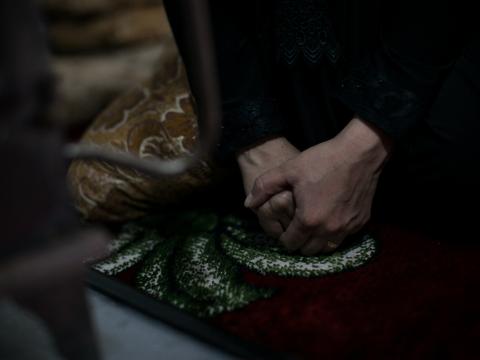Partnership key to ending violence against children

One billion children. Every year, one billion children experience violence. They are physically and sexually abused, made to work or marry when they should be in school. Some are forced to take up arms and fight in adult wars. How can we expect them to grow up unaffected? To unleash their potential and realise a better future for themselves, their families and communities?
The sheer scale of this problem can be overwhelming. It’s important to remind ourselves of the individual children behind the statistics. Children like 14-year old Amena, a Syrian refugee in Lebanon, who once dreamed of becoming a lawyer. However, her father felt he was unable to protect or provide for her; so forced her to marry an older man. Amena confided in our staff that her husband beats her and she has contemplated suicide.
Those of us part of the multi-stakeholder Global Partnership to End Violence against Children announced today, refuse to accept this as an unfortunate fact of life or consequence of war. Amena deserves better; and so do a billion other children.
Over the past 25 years, we have seen gradual steps toward ending violence against children. However, only now, with Agenda 2030, are we are at a point where violence is acknowledged as a global development issue. Decision-makers, faith leaders, civil society and citizens now have an unprecedented opportunity to make a real and tangible difference in the lives of vulnerable children. But we must move quickly, and we must do so together.
The thing is – we know how to end violence against children. We are not in search of the Holy Grail; there are proven solutions World Vision and others have successfully implemented at a national level. The challenge we have now, is to bring that experience to scale and make violence unacceptable in every society.
An end to violence against children is possible. A world where children know nothing of abuse, neglect, violence, war or exploitation. With our partners, we are ready to mobilize our collective expertise, resources, and influence to ensure stronger prevention and protection mechanisms for those in need. Because, as Nelson Mandela said “Safety and security don’t just happen, they are the result of collective consensus and public investment. We owe our children – the most vulnerable citizens in any society – a life free from violence and fear.”
Trihadi Saptoadi is World Vision International’s Partnership leader for Ministry Impact & Engagement. He and others have been closely involved in establishing Global Partnership to End Violence Against Children and ensuring children themselves were, and continue to be, consulted about its objectives and activities.